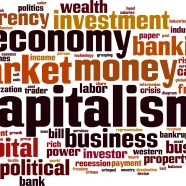 October
31
October
31
Tags
Saving Capitalism 1 Stock at a Time
By David Nelson, CFA CMT
Most of you know I’m an ex-rocker so bear with me while I pull a band from my youth.

Led Zeppelin’s Communication Breakdown was the quintessential rock song with two lines of lyrics that set the tone for what’s taking place in the communication sector this year.
Communication breakdown, it’s always the same
Havin’ a nervous breakdown, a-drive me insane
Every U.S. stock investor knows the communications sector has been under siege, significantly underperforming the rest of the market. Down about twice the S&P 500, three recent blow-ups add insult to injury.
S&P 500 vs the Communication Sector
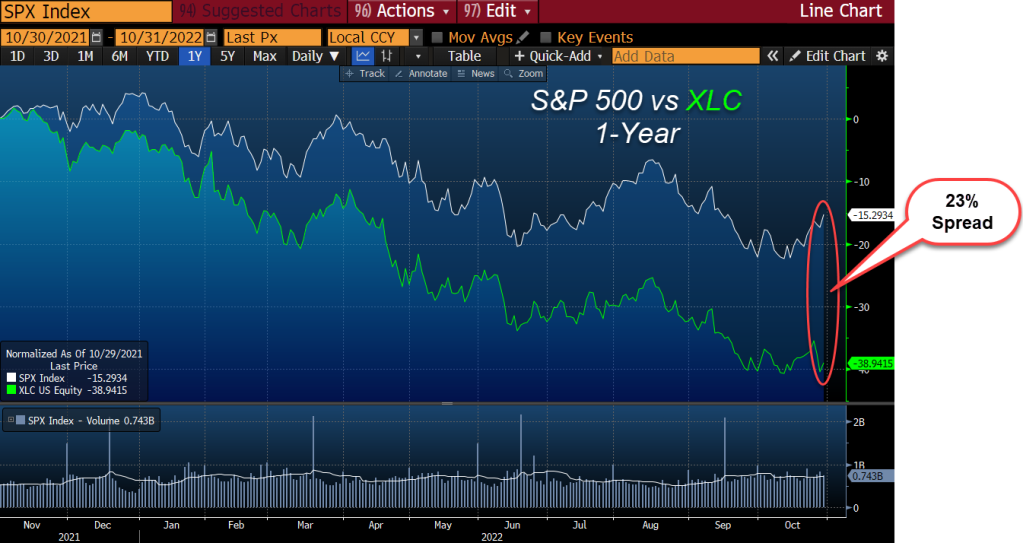
Alphabet (GOOGL) Meta (META) and SNAP. All companies face the challenges of a slowing economy, rising inflation and a born-again Fed that is determined to bring inflation under control even if it means pushing the economy over the edge.
The elephant in the room and in this case, it might be a herd is that all three have founders with dictatorial control over their companies, immune to any pushback from outside players or even the board of directors who are supposedly there to protect your shareholder rights.
If you’re not angry at what is taking place in these mega tech communication giants, you should be.
All too often board members are little more than rubber stamp to the commands from above.
 Look to China for a parallel. President Xi methodically pushed his rivals aside and now has taken an unprecedented third 5-year term commanding the most power since Chairman Mao. It was no easy task and was a decade in the making.
Look to China for a parallel. President Xi methodically pushed his rivals aside and now has taken an unprecedented third 5-year term commanding the most power since Chairman Mao. It was no easy task and was a decade in the making.
Meta’s Mark Zuckerberg, Alphabet’s Brin and Page and Snapchat’s Evan Spiegel did it with the stroke of a pen.
Meta and Alphabet have dual class share structures including super voting shares for the founders. This blocks any attempt to challenge their leadership regardless of their economic interest in the company.
SNAP
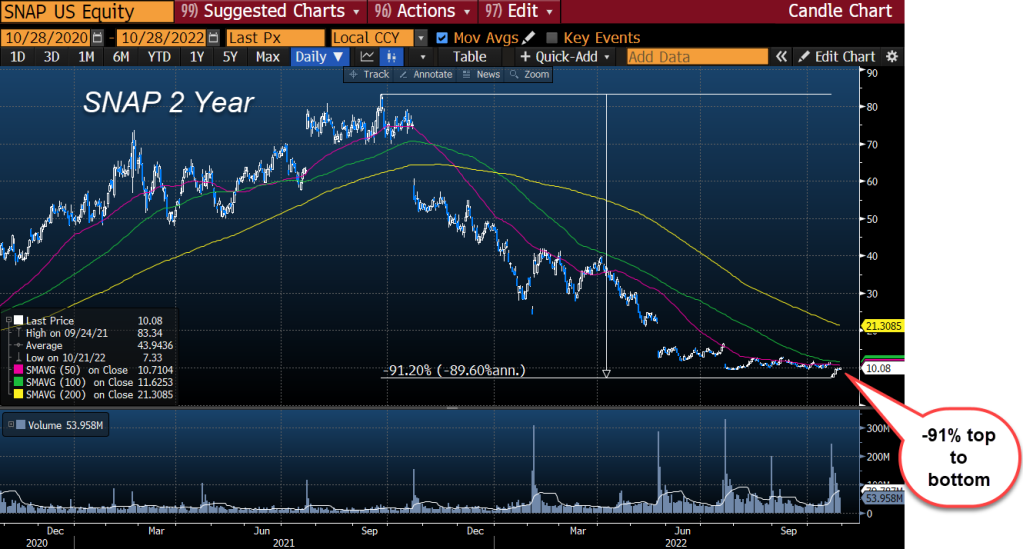
Snapchat’s Evan Spiegel took it a step further giving shareholders no voting rights at all. This was such a sore point that pension plans lobbied for the index providers to not include SNAP in an index. They didn’t want to be forced to buy a company that so blatantly stepped on shareholder rights.
Do the Math!
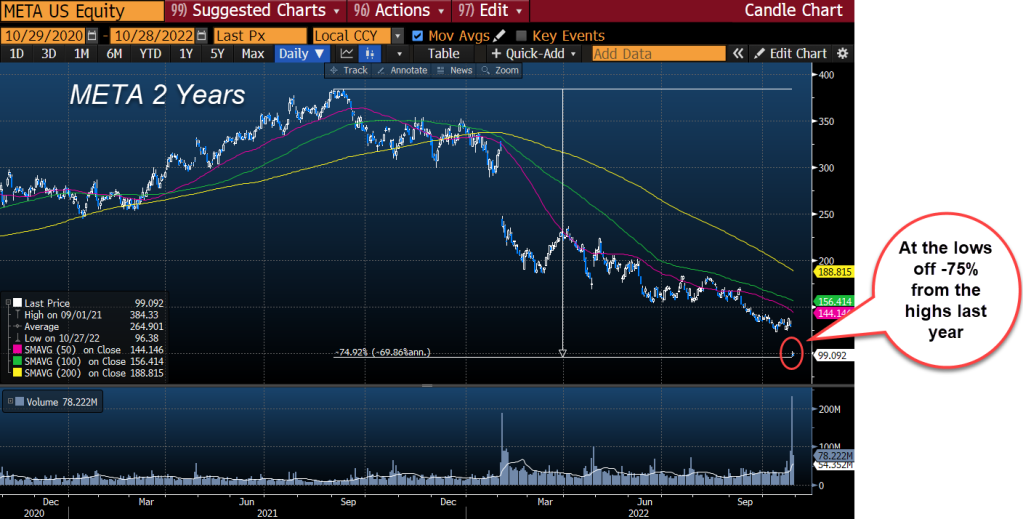
Facebook has two shareholder classes. According to SEC filings Mark owns 13.6% of the company but his Class B shares get 10 votes per share. Do the math! Mark’s stake would have to fall to just above 5% to lose control.
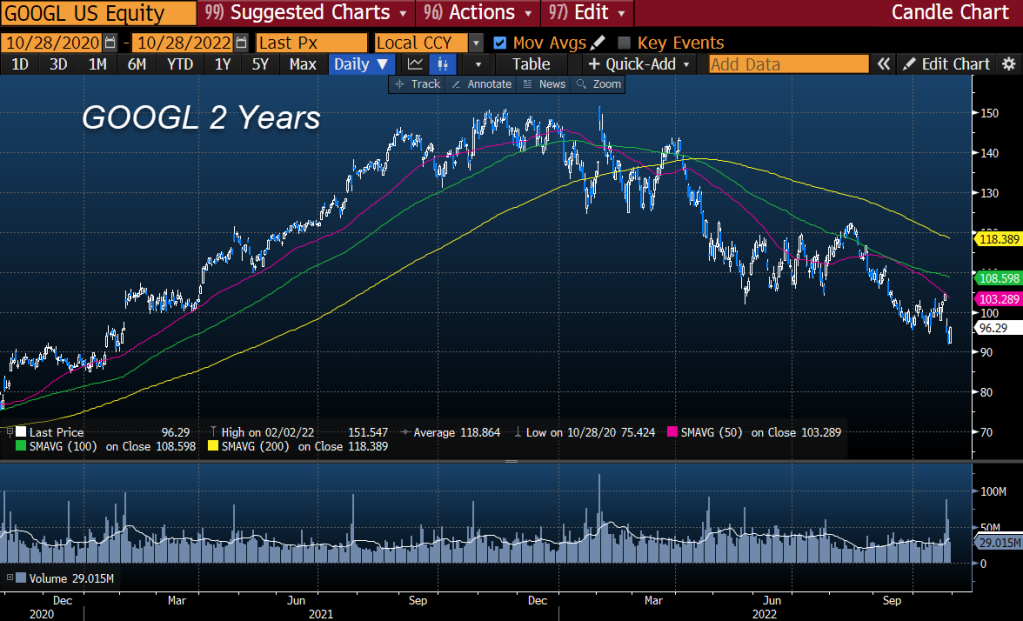
Alphabet’s Brin and Page didn’t do this out of the gate but in 2014 split the company shares adding another class of shares with no voting rights. Brin and Page could sell these shares and still retain their majority voting control.
Snap’s Evan Spiegel took this policy to its logical end giving shareholder’s no say at all. The arrogance of the above speaks to the dark side of capitalism.
NYSE Rolled Over

Dual class share structure has been around for decades in fact at one point the New York Stock Exchange outright banned it. When they started losing companies to the competition, they walked it back reinstating companies that had gone the dual class route.
If you can get away with it why not. They decided to shove it down our throats and we bought it hook, line and sinker. Yours truly included. I bought these shares.
Think of it this way. It’s like someone selling you a house that you pay for in cash but still has the power to come in and tell you what color to paint the kitchen.
The Dark Side of Capitalism
It’s really part of the dark side of capitalism and one of what I call the Unholy Trinity. Stock Buybacks, Stock Option Grants and of course Super Voting Shares.
Let’s put financials and business models aside for the moment. The arrogance of believing that you and you alone should have dictatorial lifetime control of a company you don’t have a majority interest in, isn’t just wrong, it’s Un-American.
If you’re looking for the end game and what could go wrong look no further than Paramount (PARA) formerly Viacom.
 Sumner Redstone was a giant in the communications space and between him and his daughter Shari Redstone controlled nearly 80% of the voting rights with just 10% of the shares. For most of his life he controlled the company with an iron hand but with brilliant success.
Sumner Redstone was a giant in the communications space and between him and his daughter Shari Redstone controlled nearly 80% of the voting rights with just 10% of the shares. For most of his life he controlled the company with an iron hand but with brilliant success.
His Paramount division put out some of the biggest movies in a generation including blockbusters like Saving Private Ryan, Titanic, and the Impossible Mission series.
In his later years he was suffering from dementia and ceded control to Phillippe Dauman who systematically wasted shareholder capital buying back stock at higher prices
In an attempt to regain control later, parent company National Amusements listed the poorly timed stock buybacks as part of the suit.
Later that year adding insult to injury the board extended CEO Dauman’s contract through 2018, promoting him to Chairman and awarding $54.2 million in compensation.
Yes, folks there is a dark side to capitalism.
My Way or the Highway!
 The poster child of this my way or the highway management style has to be Mr. Zuckerberg. His arrogance along with a disregard for of all voices other than his own forced a mass liquidation shedding $740 billion in market cap since the highs last year.
The poster child of this my way or the highway management style has to be Mr. Zuckerberg. His arrogance along with a disregard for of all voices other than his own forced a mass liquidation shedding $740 billion in market cap since the highs last year.
When there’s no friction or pushback from the board, founders are denied an important sounding board for their ideas.
Altimeter Capital Management’s Brad Gerstner who has worked over 25 years in the technology industry investing in both the public markets and venture capital sent an open letter to Meta’s CEO and founder Mark Zuckerberg and the board of directors.
In that letter he outlined 3 recommendations to right the ship pointing out that the core business is one of the largest and most profitable in the world worth over $45 Billion in operating profits last year alone.
But it’s investment in the metaverse an unproven alternate reality is damaging the company potentially beyond repair.

He laid out three sensible fixes.
- Reduce headcount expense by at least 20%.
- Reduce annual capex by at least $5 B from $30B to $25B; and
- Limit investment in metaverse / Reality Labs to no more than $5B per year.
The point isn’t that these are necessarily the best ideas or that Mark absolutely should follow this path, but shareholders now understand no matter how far this stock goes down Mark is beholding to no one and there’s little the board of directors or shareholders can do about it.
Other visionaries didn’t take that path. Apple founder Steve Jobs was one of the best CEOs in a generation.

The iPhone, some might call the device of the century has changed our lives. He didn’t have super voting shares in fact at one point he was fired.
17 years later he returned to Apple as CEO and of course the rest is history.
Meta, Alphabet and Snap effectively don’t give you a vote at least not one that matters and for now will follow whatever path the founders choose.
But you do have a vote. Do something about it. Cast your vote, buy companies with a capital structure that makes sense. One where management and boards answer to the shareholders, that’s you.
*At the time of this article some funds managed by David were long AAPL